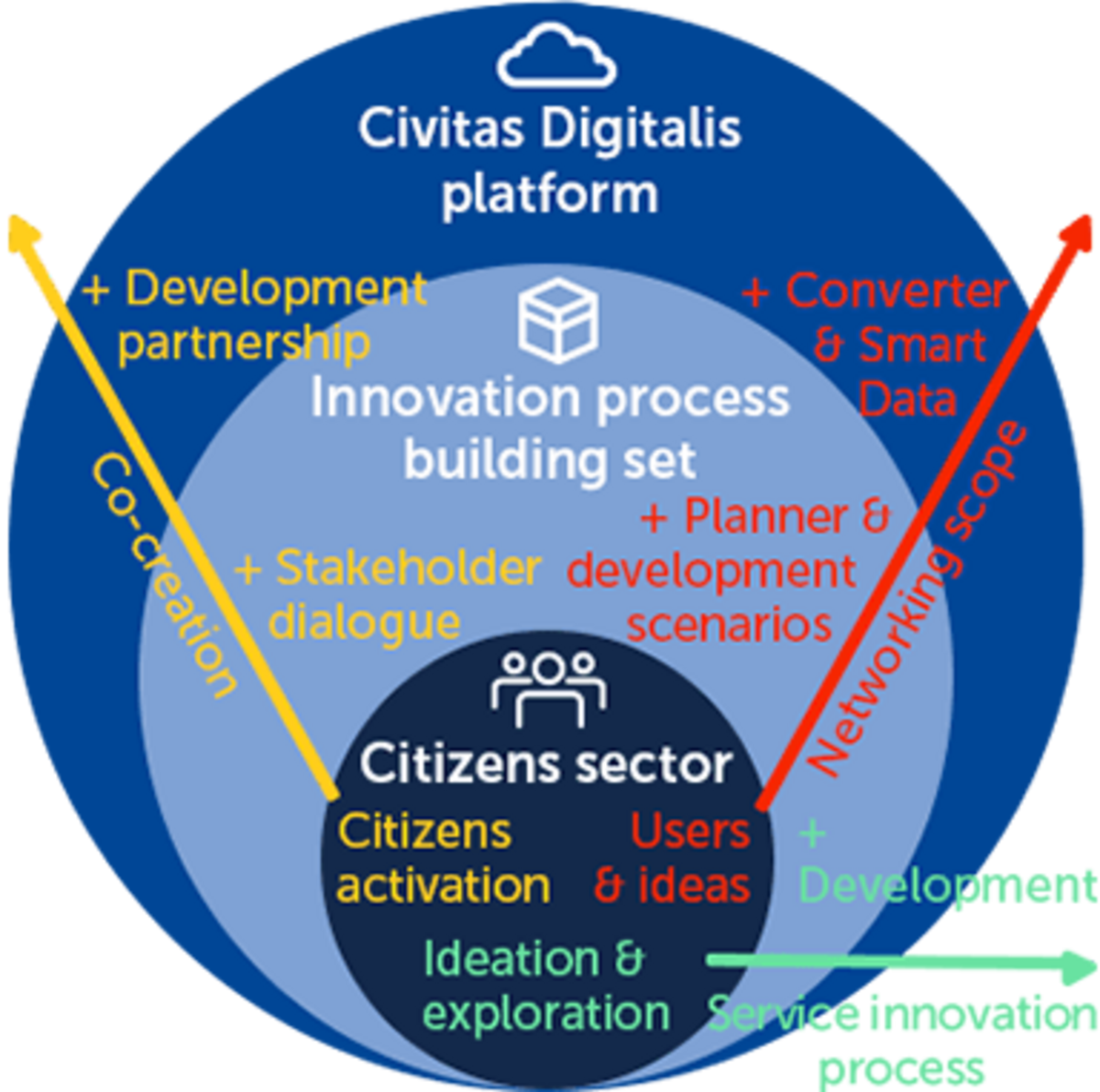
Internet platform for crowd-based service systems for creating sustainable and livable spaces

To achieve this goal, fortiss is working with the project partners on three concrete building blocks.
fortiss is responsible for the technical design, open source development and pilot operation of the tools that will be created during the development of the previously-mentioned building blocks. The University of Hamburg and the University of Kassel prepare the corresponding services concepts, while the cities of Hamburg and Kassel implement and test the solutions with citizen involvement. Examples of some of the tools that have been created include an innovative civic engagement platform (“Wake up your inner Hercules”) and an innovative chatbot user interface based on machine learning technology, which is designed to support and help cities more efficiently collect civic engagement ideas.
Federal Ministry of Research, Technology and Space (BMFTR) through the project sponsor Karlsruhe (PTKA), Research grant number: 02K15A050
01.02.2017 - 30.04.2020